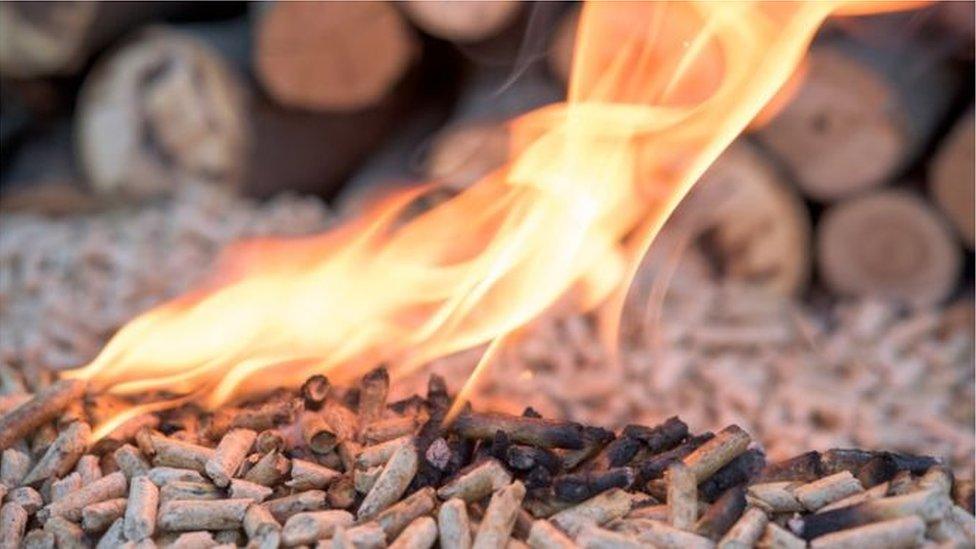RHI: Interim injunction stops naming of boiler owners
- Published

The court was told the case was being brought on behalf of members of a group set up to represent owners of boilers in the non-domestic RHI scheme
A judge has issued an interim injunction preventing the publication of hundreds of names of Renewable Heat Incentive (RHI) claimants.
The judge took the decision after reserving judgement in a challenge to the publication plan.
The move stops the Department for the Economy from revealing the names of Renewable Heat Association (RHANI) of Northern Ireland members on Wednesday.
The RHANI represents owners of boilers in the non-domestic RHI scheme.
Hundreds of boiler owners were represented in the action taken by the group on Tuesday.
The number of owners in the RHANI rose from 335 to 450 between the 14:00 GMT injunction being delivered on Tuesday and the cut-off time of 17:00 GMT for the delivery of names to the Department for the Economy.
The RHI scheme was intended to increase the creation of heat from renewable sources.
However, businesses have been receiving more in subsidies than they are paying for renewable fuel and the scheme became majorly oversubscribed.
The fallout from the scandal surrounding the scheme, which is approximately £490m over budget, resulted in the collapse of Stormont's institutions and the calling of snap elections on 2 March.
'Feeding frenzy' warning
The judge said it was "appropriate" to grant the injunction pending the delivery of his judgement next week on whether boiler owners could mount a full legal challenge to the publication plan.
A spreadsheet of members of the association was passed to the department at 17:00 GMT on Tuesday, but those people cannot be named.
It is not yet clear whether other claimants will be.
Earlier, a barrister for the boiler owners said revealing the names would lead to a "feeding frenzy" by the media.
There had been criticism of officials and ministers over the scheme and publishing the names could "deflect criticism" on to claimants, he said.
Most boiler owners were using the scheme legitimately and should not be subject to any sanction, he added.
A spokesperson for the Department for the Economy said: "The Minister is considering the court judgement and will reflect on options to ensure maximum transparency on the details of non-domestic RHI recipients consistent with today's ruling."
Transparency
A barrister for the Department for the Economy said there was a "profound public interest" in the case, brought to light by the "diligent work" of the Northern Ireland Audit Office, the assembly's Public Accounts Committee and the media.
Transparency around the names would encourage compliance with the rules, he said.
He also revealed that an unnamed co-applicant in the case was a poultry farmer with four 99kw boilers on the more lucrative subsidy rate in the scheme.
That applicant has been granted court anonymity for the duration of the case.
A lawyer for the claimants precluded any idea that people could "burn to earn".
The heat had to be produced for a "useful purpose", he said.
Most of the firms were using it for poultry, mushroom & wood chip production, he added.
The barrister also criticised media coverage of the story.
He said it had been "sensationalist", particularly as the phrase "cash for ash" suggested that people were making money purely from burning the fuel.
He said the media had focused "almost exclusively" on alleged abuse of the scheme and not on those using it legitimately.
The court was told that the case was being taken by Michael Doran, the chairman of the Renewable Heat Association.
He is also the head of Action Renewables, a not-for-profit group which supports the renewables industry.
Mr Doran does not have a boiler and is not a recipient of the subsidy.
- Published7 November 2017

- Published23 October 2019
